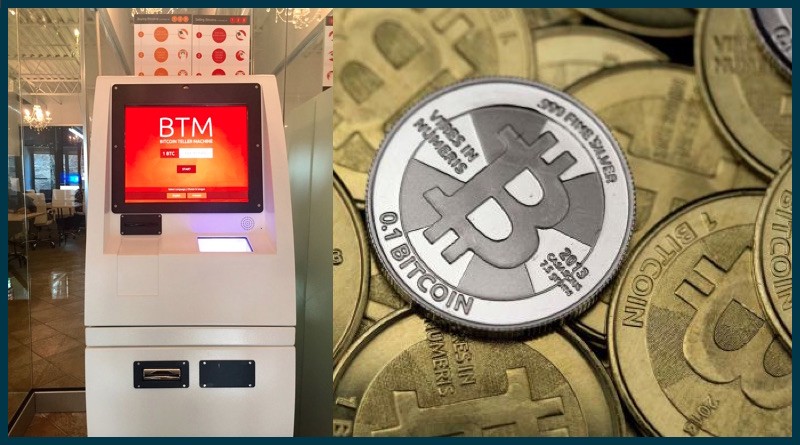How Bitcoin ATMs are Spreading In The U.S.
When we think of Bitcoin and other cryptocurrencies, we tend to consider currencies that are exchanged entirely online, via digital means. We imagine electronic wallets and transactions more akin to exchanging funds with a service like Venmo than any other sort of more normal cash transaction.
Indeed, that’s traditionally how it works. If you happened to be looking into how to acquire Bitcoin for the first time, you’d find that digital currency is usually purchased through exchanges or individuals. It’s all done on the web, where you can gather Bitcoin by trading some traditional currency and providing your Bitcoin address in order to receive the digital funds. It’s really that simple, and generally speaking that electronically focused. That being said, the idea of in-person Bitcoin ATMs (or BTMs as they’re sometimes called) is starting to spread.
This is appealing largely to potential Bitcoin users who either don’t have bank accounts or would rather pay in cash. At a physical Bitcoin ATM or kiosk, you can input your phone number, scan the QR code for your Bitcoin wallet, and then put in cash. Bitcoins are then transferred to your account accordingly, and you gain the ability to transfer them to other people or companies online the way a typical Bitcoin exchange works. The whole process can be completed without a traditional bank account (whereas if you’re just looking to start at your computer you’ll likely need to draw funds from such an account rather than cash).
And Bitcoin ATM transactions are not merely conceptual, even if they’re relatively new at this point. Not long ago, a report came out citing Coin Cloud as a growing Bitcoin ATM company that now has 15 BTM kiosks and claims to be the biggest BTM on the West Coast. The company has directly looked to capitalize on the same ideas just discussed, such as buying Bitcoin with cash or doing so without a bank account. And it appears that the approach has been successful given their growth.
Meanwhile in the Midwest and on the East Coast, a recent tech acquisition has set the stage for another major burst in Bitcoin ATMs. Athena Bitcoin, a rising ATM company in certain parts of the country, has acquired BitQuick, which has operated as a quick and secure online exchange for some time now. That expands the network and outreach potential for a company in Athena Bitcoin that already has over 15 ATMs placed between Dallas and Philadelphia, and as far north as Chicago.
That may not sound like a whole lot: a handful of Bitcoin ATMs on each coast and in the Midwest. But given that most of us still perceive cryptocurrency as something that’s handled entirely online, the spread of ATMs could be pretty significant. Part of what’s held Bitcoin back (to an extent) over the years has been that even as people have gained a better understanding of it, it’s remained inaccessible (or at least it’s thought of that way). ATMs are all about quick and easy access, and if they continue to spread they could significantly impact Bitcoin’s standing in society.

Charles Bell

Latest posts by Charles Bell (see all)
- How Bitcoin ATMs are Spreading In The U.S. - July 21, 2016




